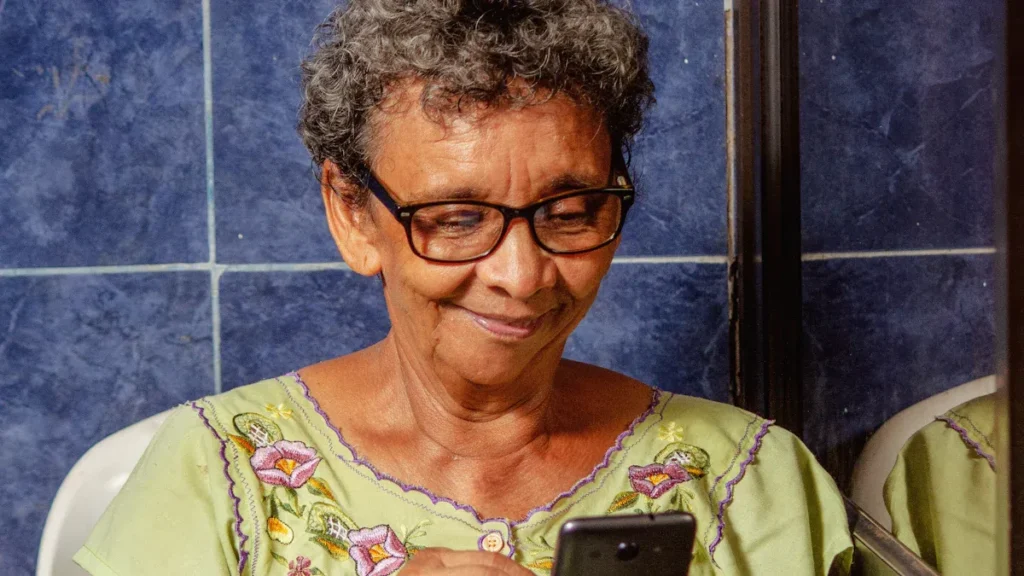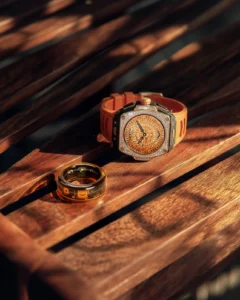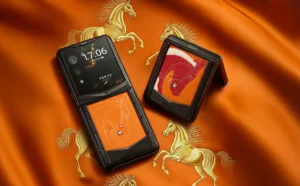Yes — simple phones are often the best choice for seniors, especially those who value ease of use, clear communication, and long battery life. But whether a senior should choose a simple phone or a smartphone depends on eyesight, hearing, memory, and lifestyle needs.
This guide breaks down the benefits, drawbacks, and real device comparisons so families can make an informed decision.
Key Takeaways
-
Simple phones reduce cognitive load and are easier for seniors with memory or vision challenges.
-
Modern senior-friendly phones offer hearing-aid compatibility, large buttons, louder speakers, and emergency features.
-
For active, tech-comfortable seniors, simplified smartphones may offer better value.
-
Brand examples: Jitterbug, Nokia, Doro, Sonim, and senior-mode options on Samsung/Apple devices.
-
Choose based on health needs, communication frequency, and safety features.
Why Simple Phones Are Good for Many Seniors
1. Larger Buttons & Clearer Interfaces
Age-related vision changes like presbyopia make small icons difficult to read. Classic phones such as the Jitterbug Flip2 and Nokia 3310 (4G) have:
-
Large tactile buttons
-
High-contrast screens
-
Minimal menus
These reduce the chance of misdials and frustration.
2. Better Call Quality & Hearing-Aid Compatibility
Most senior-focused phones meet FCC hearing-aid ratings M4/T4, meaning:
-
Clearer sound
-
Less interference
-
Higher volume output
The Jitterbug Flip2, for example, has M4/T4 ratings—matching modern smartphones but with simpler audio routing.
3. Long Battery Life
Simple phones lack power-hungry apps, so batteries last 3–10 days depending on model.
Example: Nokia 3310 4G lasts up to 27 days standby.
4. Emergency SOS Features
This is a major reason families choose simple phones.
Across senior-oriented models you’ll find:
-
One-touch SOS buttons
-
GPS location sharing
-
24/7 emergency response (Jitterbug)
-
Auto call to preset contacts
This makes these phones excellent for seniors living alone.
5. Lower Cognitive Load
Seniors with memory decline often struggle with complex interfaces.
Simple phones avoid:
-
App notifications
-
Cluttered home screens
-
Multitasking confusion
This makes everyday communication easier and stress-free.
When Seniors May Prefer a Smartphone Instead
Simple phones are great, but not perfect. Some seniors benefit from smartphones when they need:
✔ Video calling (e.g., FaceTime, WhatsApp)
✔ Health tracking (heart rate, fall detection, medication reminders)
✔ Ride-sharing, food delivery, or telehealth apps
✔ High-resolution cameras for family connections
For these users, devices like the iPhone SE, Samsung Galaxy A15, or Doro 8100 (simplified senior UI) may be better.
Real Device Comparison (2025 Accurate Specs)
Below is a factual comparison of popular senior-friendly phones vs simple smartphones that seniors commonly use:
Senior Phone vs Smartphone Comparison
| Feature | Jitterbug Flip2 (Lively) | Nokia 3310 4G (2024) | Doro 8100 Smartphone | iPhone SE (2022) |
|---|---|---|---|---|
| Type | Simple Flip Phone | Simple Feature Phone | Simplified Smartphone | Smartphone |
| Screen | 2.8″ | 2.4″ | 6.1″ | 4.7″ |
| Buttons | Large physical keys | Physical keys | Touchscreen | Touchscreen |
| Hearing Aid Rating | M4/T4 | N/A | M3/T3 | M3/T4 |
| Battery Life | Up to 12 days standby | Up to 27 days standby | Up to 1–2 days | Up to 1 day |
| Emergency Button | Yes (Urgent Response) | Yes | Yes | Emergency SOS only |
| Connectivity | 4G LTE | 4G LTE | 4G/5G | 4G/5G |
| Voice Assistant | Yes | No | Google Assistant | Siri |
| Ideal For | Seniors wanting max simplicity | Seniors who prefer classic phones | Seniors wanting apps + simplicity | Tech-comfortable seniors |
All specs sourced from Lively, Nokia, Doro, and Apple official product listings.
Pros & Cons Summary
Simple Phones — Pros
-
Extremely easy to use
-
Long battery life
-
Affordable
-
SOS features
-
Durable
-
No unnecessary distractions
Simple Phones — Cons
-
No video calling
-
Limited texting
-
No apps
-
Lower camera quality
Smartphones for Seniors — Pros
-
Video calls with family
-
Health tracking / emergency functions
-
Better cameras
-
Voice assistants reduce complexity
Smartphones — Cons
-
Higher learning curve
-
Shorter battery life
-
More expensive
How to Choose: A Quick Decision Guide
Choose a Simple Phone If the Senior:
-
Has vision difficulties
-
Has memory challenges
-
Only needs calling & texting
-
Lives alone (needs easy SOS access)
-
Wants long battery life and few distractions
Choose a Smartphone If the Senior:
-
Uses FaceTime/WhatsApp
-
Enjoys taking photos
-
Wants health + safety apps
-
Is comfortable learning new tech
-
Uses online services (banking, maps, rideshare)
Notable Luxury Option for Senior Executives
While simple phones dominate the senior market, there is a niche group of high-net-worth seniors or executives who want:
-
Premium build quality
-
Strong signal stability
-
Ultra-secure communications
For these users, brands like Vertu (e.g., Vertu Quantum Flip or Agent Q) offer:
-
Tri-system secure OS
-
Superior signal performance
-
Concierge services
-
Executive-level durability
These devices are not simple phones, but they meet security and reliability needs for senior professionals.
Final Verdict: Are Simple Phones Good for Seniors?
Absolutely — for many seniors, simple phones are the safest, easiest, and most comfortable option.
But each senior is unique. The key is matching the phone to the individual’s:
-
Vision
-
Hearing
-
Memory
-
Lifestyle
-
Safety needs
-
Tech comfort
With the right device, communication becomes effortless for seniors and reassuring for families.









